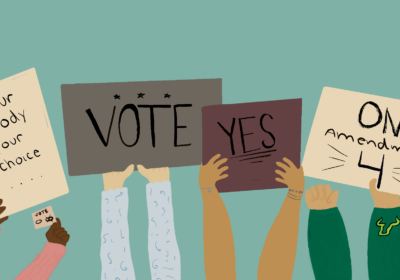Murderers have no place in Afghanistan’s vice presidential seat
Though the runoff presidential election earlier this month may result in a United Nations investigation, Afghanistan’s government could finally renew its citizens’ confidence with candidates that inspire hope for the presidency: Abdullah Abdullah, M.D., and Ashraf Ghani, a globally recognized intellectual who led Afghanistan’s post-Taliban economic recovery.
Yet both of the candidates have chosen war criminals as running mates.
Abdul Dostum, condemned as a “known killer” by Ghani and whose appointment by President Hamid Karzai as defense minister was an “unconscionable act” to Ghani, is Ghani’s choice for first vice president. In the custody of Dostum’s army, thousands of Taliban prisoners were starved to death and shot in shipping containers. He continues to inspire controversy with his war crimes and inflammatory rhetoric, calling those who do not vote for Ghani “traitors.”
Though Mohammad Mohaqiq’s hunger strike in response to Karzai’s indifference to a Pashtun massacre of Hazara civilians in 2008 may seem commendable, it was done to advance ethnic, not humanitarian, interests. After the Taliban’s fall, he led a Hazara political party as it looted villages, raped women, and massacred Pashtun civilians. He has continued to pursue ethnic instead of national interests, calling Karzai an “illegitimate” president over Karzai’s refusal to give his tribe five cabinet posts. Mohaqiq is now Abdullah’s choice for second vice president.
Yet the U.S. refused to condemn any candidate in the wake of Karzai’s demands to keep foreigners out of Afghanistan’s electoral affairs. Security isn’t the only problem the U.S. must address. The government needs the support of its civilians to stem the insurgency, and an election where six of 11 campaigns and both campaigns in the runoff election are led by mass murderers isn’t helping.
The government’s ability to take the moral high ground is what distinguishes it from the Taliban. It has a sense of humanity diametrically opposed to the Taliban’s mass murder. However, this is lost when murderers are the only options for the Afghan vice presidency.
According to a Gallup poll last year, 80 percent of Afghan civilians have confidence in the military, but there is little reason for a civilian to back the government instead of the Taliban when mass murderers are elected to public office. The civilian expects the government to try and punish murderers, not to be governed by them.
The image of the government has become so tarnished that the elections are saturated with negativity, a mirror image of the military — 80 percent have little or no confidence in Afghanistan’s elections, according to
a Gallup poll.
The U.S. must take an active role in the electoral process. Officials must be held accountable for human rights abuses to help forge a lasting government. A government cannot continue to exist if it fails to choose between a democracy, where officials are accountable, and an autocracy, where all dissent is quashed.
Anhvinh Doanvo is an incoming freshman majoring in biomedical science.






